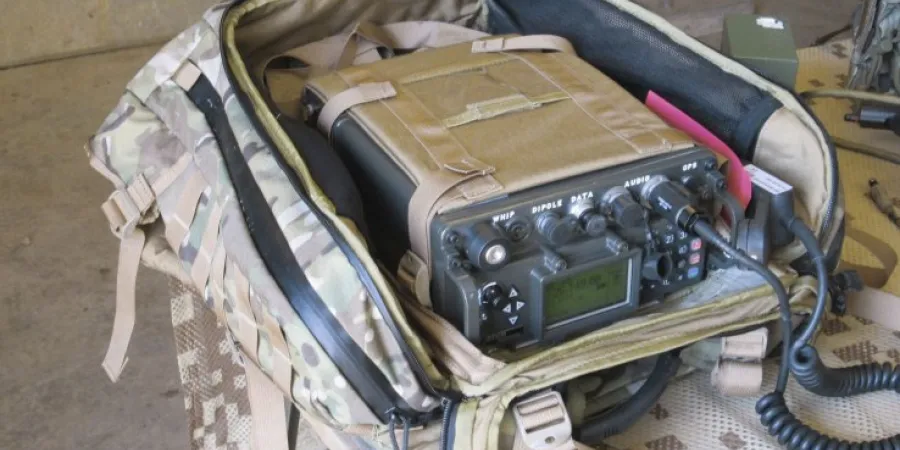British Army Orders More Israeli Radios
The radios, supplied under a USD9 million contract placed with the UK company Drumgrange, have been manufactured at plants belonging to Elbit Systems
IsraelDefense
| 13/04/2017
The first field exercises with the British Army's new Mercury family of cadet training radios are expected to begin on 19 April. The radios, supplied under a USD9 million contract placed with UK company Drumgrange, have been manufactured at plants belonging to Elbit Systems in Israel.
The Mercury family includes the UK/PRC710 5W VHF handheld transceiver and a 20W basestation variant, the UK/PRC715, both derived from the PRC-710 originally developed by Tadiran Communications (now part of Elbit). The UK/PRC710, which is unencrypted and has no frequency hopping capability, has been adapted to take batteries compatible with the US AN/PRC-148 and AN/PRC-152 multiband handheld radios already in British Army service.
The third Mercury transceiver element is the UK/PRC720 25W HF manpack, which is based on the Micom 3 Pathfinder 25W HF SSB transceiver originated by Mobat Communications (now also part of Elbit Systems). The baseline Micom 3 is constructed in compliance with MIL-STD-810 environmental standards, and has an operating temperature range of -30 to 60°C. Its frequency range is 1.6-30 MHz with an automatic link establishment capability in accordance with MIL-STD-188-141B. The transceiver weighs 5.2 kg without its battery and measures 220x220x109 mm.
According to Drumgrange, its Mercury contract covers the supply of 2,500 UK/PRC710s and 400 20W amplifiers for the UK/PRC715 mobile and basestation variant, plus 150 UK/PRC720s. For chat nets and data communications exercises the UK/PRC720 will be used in conjunction with GeTAC laptop terminals drawn from British Army stocks. In-service support is to be provided under the auspices of the established Bowman Logistics Supply and Support Provision (LSSP) program, run by General Dynamics UK.
The Mercury family has been brought in as a rapid-reaction program to replace obsolete Clansman radios, including UK/PRC320 HF manpack and UK/PRC349 VHF handheld transceivers, which were used for cadet training until 2015 when they were condemned as non-compliant with current standards.
[Source: IHS Jane's]
The radios, supplied under a USD9 million contract placed with the UK company Drumgrange, have been manufactured at plants belonging to Elbit Systems
The first field exercises with the British Army's new Mercury family of cadet training radios are expected to begin on 19 April. The radios, supplied under a USD9 million contract placed with UK company Drumgrange, have been manufactured at plants belonging to Elbit Systems in Israel.
The Mercury family includes the UK/PRC710 5W VHF handheld transceiver and a 20W basestation variant, the UK/PRC715, both derived from the PRC-710 originally developed by Tadiran Communications (now part of Elbit). The UK/PRC710, which is unencrypted and has no frequency hopping capability, has been adapted to take batteries compatible with the US AN/PRC-148 and AN/PRC-152 multiband handheld radios already in British Army service.
The third Mercury transceiver element is the UK/PRC720 25W HF manpack, which is based on the Micom 3 Pathfinder 25W HF SSB transceiver originated by Mobat Communications (now also part of Elbit Systems). The baseline Micom 3 is constructed in compliance with MIL-STD-810 environmental standards, and has an operating temperature range of -30 to 60°C. Its frequency range is 1.6-30 MHz with an automatic link establishment capability in accordance with MIL-STD-188-141B. The transceiver weighs 5.2 kg without its battery and measures 220x220x109 mm.
According to Drumgrange, its Mercury contract covers the supply of 2,500 UK/PRC710s and 400 20W amplifiers for the UK/PRC715 mobile and basestation variant, plus 150 UK/PRC720s. For chat nets and data communications exercises the UK/PRC720 will be used in conjunction with GeTAC laptop terminals drawn from British Army stocks. In-service support is to be provided under the auspices of the established Bowman Logistics Supply and Support Provision (LSSP) program, run by General Dynamics UK.
The Mercury family has been brought in as a rapid-reaction program to replace obsolete Clansman radios, including UK/PRC320 HF manpack and UK/PRC349 VHF handheld transceivers, which were used for cadet training until 2015 when they were condemned as non-compliant with current standards.
[Source: IHS Jane's]



